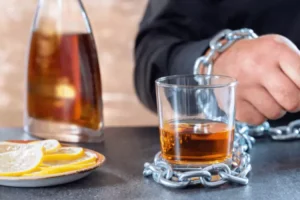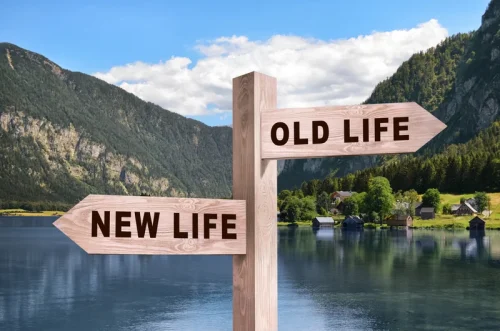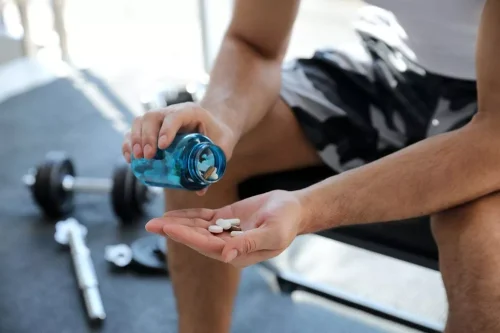The Best Fluffy Pancakes recipe you will fall in love with. Full of tips and tricks to help you make the best pancakes.

This is especially true for those who have a history of lung or heart diseases, or other medical conditions, as withdrawal symptoms can quickly worsen. Your treatment specialist will be able to track your blood pressure and heart rate to make sure your condition doesn’t worsen. You can also talk with them about the symptoms you are experiencing, as well as if you are in any pain. This information helps your medical team determine which medicine will help alleviate your discomfort.
Latest Gilmore Health News
- Once you do so, you should consider stopping hanging out with them or communicating your sobriety initiative.
- Withdrawal symptoms can begin to surface in as early as two hours after your last drink.
- Treatment professionals at a rehab facility will be able to help you manage your pain with different medications.
Once alcohol is in your system, the natural question is how to expedite its removal. While time and liver metabolism are the primary factors, there are steps you can take to support this process. A full-body detox is part of regular organ function, with the body naturally eliminating harmful or toxic substances through https://ecosoberhouse.com/ the kidneys, liver, digestive system, skin, and lungs. Regular physical activity lowers inflammation and allows your body’s detoxification system to work properly. By reducing inflammation, exercise can help your body’s systems — including its detoxification system — function properly and protect against disease.
What Are the Risks of Getting Alcohol Out of Your System?

Incorporating Vitamin B-rich foods into your diet after alcohol consumption can support your body’s detoxification processes and help mitigate the negative effects of alcohol. Your body absorbs alcohol more slowly when you have food in your stomach. Those who drink on an empty stomach will feel the effects of alcohol more quickly. A person who has not eaten will hit their peak blood alcohol level between 30 minutes and two hours after consumption, depending on the amount of alcohol consumed. To return to your regular work performance, you must get your body back to stay hydrated and get rid of alcoholic fluids. With that, you need to drink plenty of water after consuming alcohol to reduce the feeling of dehydration.

Breaking the Cycle: The Role of Codependency in Substance Abuse
- Excess junk food consumption is linked to chronic diseases like obesity and diabetes.
- Women who drink their normal amount of alcohol prior to menstruation will experience higher BACs than they otherwise would.
- On average, it takes about one hour for the body to eliminate one standard drink.
- A doctor will consider all these factors when estimating how long-lasting and how severe your symptoms may be.
All of these services can help you reduce alcohol cravings and build a healthy, sober life. A half-life is how long it takes for your body to get rid of half of it. But you need about five half-lives to get rid of alcohol completely. So, it takes about 25 hours for your body to clear all the alcohol. The liver gets most of the attention when it comes to alcohol metabolism. If you find it challenging to control your drinking or if it’s causing significant problems in your life, it might be time to seek professional advice.
After years of drinking alcoholic beverages on special occasions, you might realize that you won’t want to experience the feeling of getting drunk. Instead of frequently looking for ways to deal with the consequences of this situation, you should consider limiting your alcohol consumption. However, you must be careful with the food you allow into your body because some of it might cause you to throw up or worsen your headache. With that, you must avoid eating carbohydrate-rich foods like burgers, bacon, ham, cheese, fries, and chocolate because they might affect your health. Moreover, you should avoid indulging in spicy foods because they can upset your stomach and mess with your system.
How Long Does Alcohol Stay in Your System?
If you have decided that it is in your best interest to stop drinking, one option is to seek help from a family doctor or primary healthcare provider. Make no mistake about it, alcohol withdrawal symptoms can be severe, and in some cases fatal. If you are a daily drinker, a heavy drinker, or a frequent binge drinker, suddenly quitting will likely produce a wide range of uncomfortable symptoms. Alcohol withdrawal can produce both physical and psychological symptoms. The severity of the symptoms you will experience often depends on the amount and duration of your alcohol consumption. Although you can easily fall asleep after getting heavily intoxicated, you should avoid doing so because you’ll feel disturbed.


As a matter of fact, 90% of the metabolism of alcohol into water and carbon dioxide is performed by the liver. The remaining 10% is removed through the lungs (breathing), kidneys (urine), and skin (sweating). The half-life of alcohol is four to five hours, which represents how long it takes your body to get rid of half of the alcohol you have consumed. It takes five half-lives for how to flush alcohol out of your system your body to metabolize all of the alcohol you’ve had, anywhere between 20 to 25 hours on average. You cannot flush alcohol out of your system or lower your BAC faster, but you can practice self-care to support recovery after drinking. While drinking a lot of water is not the perfect answer to how to flush alcohol from urine, it is a big help because of all the released toxins.
What resources are available for those seeking help with excessive drinking?
Reach out to a treatment provider for free today for immediate assistance. Caffeine is a stimulant, which can perk you up and reverse some of alcohol’s effects. If you’ve had a drink or two, you might be wondering just how long that alcohol will stay in your system. Read more about what kind of supplements can help you recover from binge drinking. Activated Charcoal is actually quite incredible, and is used in emergency rooms around the world to support detoxification after the ingestion of chemical or environmental poisons. What equates to 1 drink depends on the size and type of alcoholic drink you have.

In general, it’s safe to quit alcohol on your own as long as you have been drinking in moderation. The Centers for Disease Control and Prevention (CDC) recommends that adults get at least seven hours of sleep per night. Our approach combines medication-assisted treatment with personalized coaching to provide comprehensive support throughout your journey. To take the first step towards a healthier, alcohol-free life, schedule an appointment with us today or give us a call. Our dedicated team members are ready to assist you on your path to recovery.
Overall, drinking a minimal amount of this refreshment can lighten up social gatherings, which will help people develop tighter bonds. However, it is important to remember that study after study has shown that no amount of alcohol is safe for health so it is better to avoid it altogether. Talk to your doctor or a drug treatment specialist about what to expect as you experience alcohol withdrawal. Identify a family member or friend who you can call on to provide emotional support. Most hangovers start once your blood alcohol level starts to return to zero. Hangovers generally only last up to 24 hours and go away on their own.

